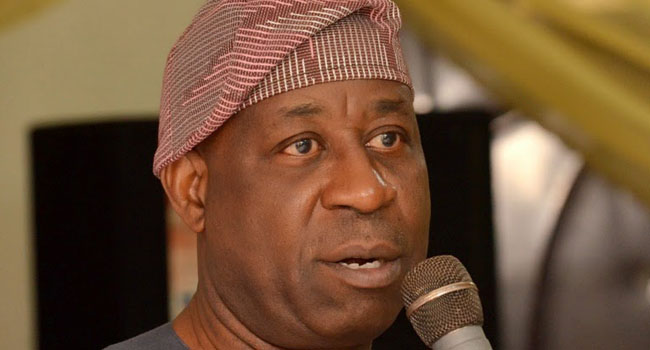In a proactive stance aimed at safeguarding economic stability, the Alake of Egbaland has advocated for a policy of mineral equity to prevent nations from falling into the perilous grip of debt.
The traditional ruler emphasized the importance of responsible resource management and equitable distribution of mineral wealth as a strategic measure to avoid the pitfalls associated with indebtedness. This call comes at a crucial time when many nations are grappling with economic challenges, and the judicious handling of mineral resources is seen as a key factor in ensuring long-term financial sustainability.
**Navigating the Debt Trap Dilemma**

The Alake’s call for mineral equity is rooted in the recognition of a global phenomenon where nations, despite possessing valuable mineral resources, find themselves ensnared in debt traps. This situation often arises when the exploitation and management of these resources are not conducted with a clear focus on equitable distribution and sustainable development. The Alake’s advocacy seeks to address this challenge by promoting a balanced and responsible approach to mineral wealth.
**The Imperative of Mineral Equity**
Mineral equity, as proposed by the Alake, involves a fair and just distribution of benefits derived from mineral resources. This encompasses not only revenue-sharing mechanisms but also considerations for environmental sustainability, local community development, and the creation of a sovereign wealth fund to safeguard against economic shocks. The Alake contends that prioritizing mineral equity can lead to more inclusive economic growth, reducing the risk of debt accumulation.
**Responsibility in Resource Management**
The traditional ruler’s advocacy underscores the importance of responsible resource management by both governmental and private entities involved in the extraction and utilization of mineral resources. This includes transparent governance structures, stringent environmental standards, and mechanisms to ensure that the wealth generated from these resources benefits the broader population. The goal is to prevent a scenario where a nation’s mineral wealth becomes a source of economic vulnerability rather than prosperity.
**Lessons from Global Economic Dynamics**
The call for mineral equity resonates with lessons learned from nations that have faced challenges related to mismanagement of mineral resources and subsequent debt burdens. History is replete with examples where countries rich in resources struggled with economic stability due to issues such as corruption, misappropriation of funds, and lack of foresight in harnessing the potential of their mineral wealth. The Alake’s advocacy seeks to prevent such pitfalls and position nations for sustained economic resilience.
**Local and Global Relevance**
While the advocacy for mineral equity has immediate relevance to the local context, it also aligns with global conversations on sustainable development. The responsible management of mineral resources is increasingly becoming a focal point in international dialogues, and the Alake’s call adds a valuable voice to the discourse. As nations grapple with the challenges of a rapidly changing global economy, a commitment to mineral equity can be a linchpin for ensuring economic stability and growth.
**A Call for Collaborative Action**
The Alake’s advocacy is not merely a call to governments but extends to all stakeholders involved in the mineral resource value chain, including multinational corporations, civil society, and local communities. Collaborative efforts are crucial in ensuring that the benefits derived from mineral resources are shared equitably, and mechanisms are in place to prevent the negative consequences associated with debt accumulation.
**Conclusion: A Vision for Sustainable Prosperity**
In championing mineral equity, the Alake of Egbaland presents a vision for sustainable prosperity that transcends immediate economic gains. This advocacy is a clarion call for nations to learn from the past, adopt responsible resource management practices, and prioritize equitable distribution of mineral wealth. By doing so, nations can avoid the debt traps that have befallen others, setting the stage for enduring economic stability and inclusive growth. The Alake’s vision underscores the profound impact that strategic resource management can have on the trajectory of a nation’s development.
Support InfoStride News' Credible Journalism: Only credible journalism can guarantee a fair, accountable and transparent society, including democracy and government. It involves a lot of efforts and money. We need your support. Click here to Donate
